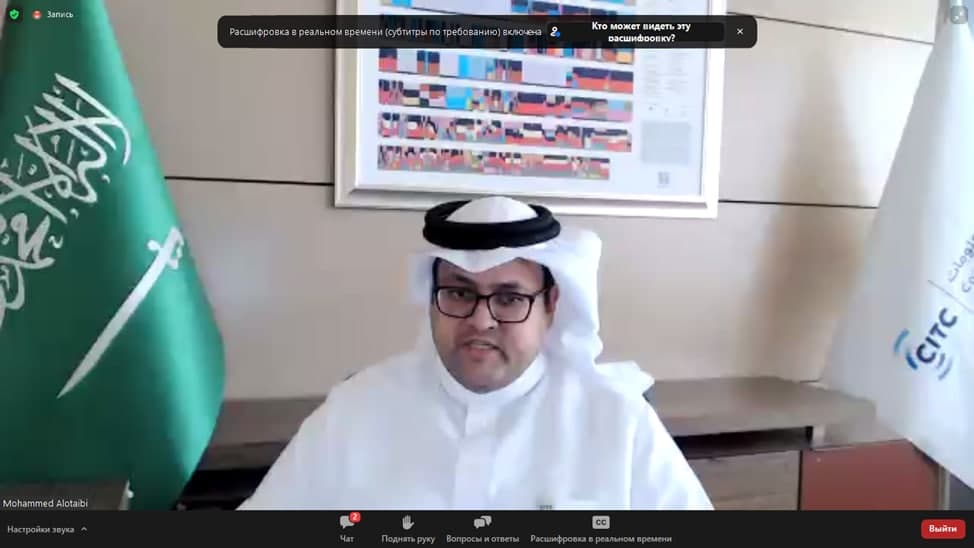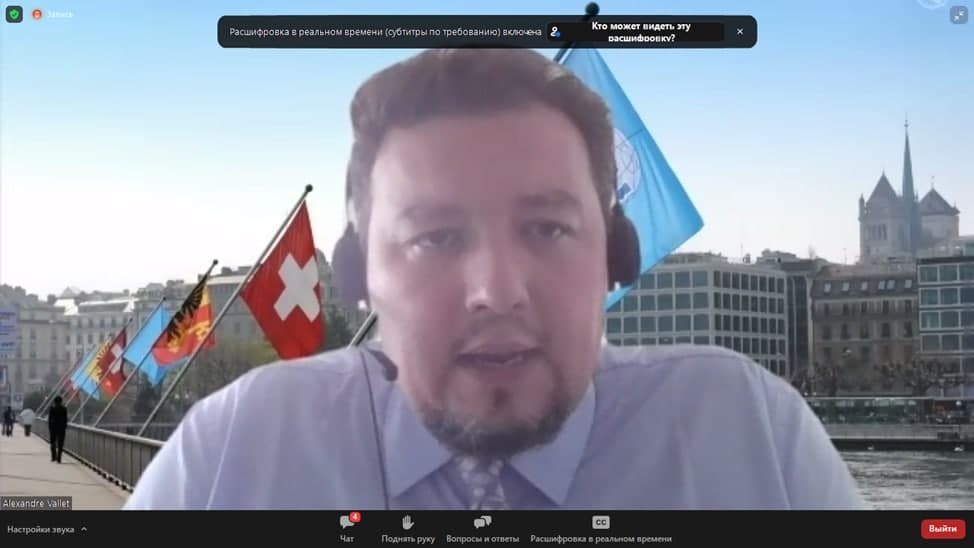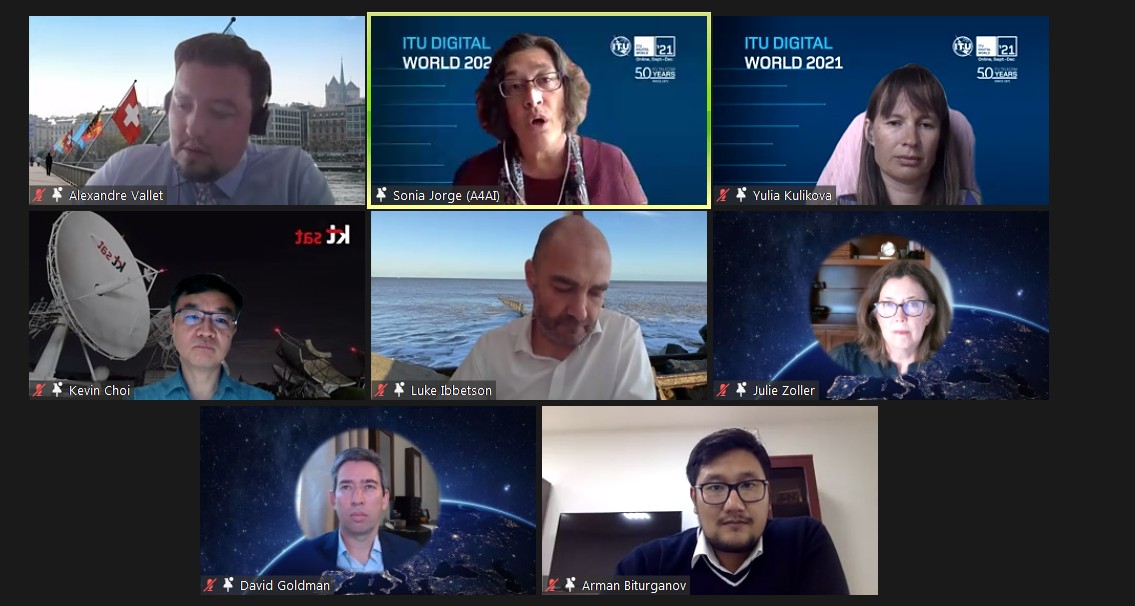
On 15 September 2021, an ITU Digital World session was held on the theme: Space for Change: Satellites in the Service of Digital Transformation. The session took place in a virtual format using the Zoom application.
The event was attended by representatives of regional and international telecommunication organizations.
Mohammed Alotaibi, Deputy Governor for Radio Spectrum, Communications and Information Technology Commission (CITC), opened the above-mentioned meeting and delivered a welcome address.

He stressed that developments in satellite technology, changing business models and growing demand for services made satellites more relevant than ever. A variety of options, ranging from non-geostationary orbit satellites (NGSO) to geostationary orbit satellites (GSO) in low, medium or geostationary orbits (LEO, MEO, GEO), were being developed to meet the needs of commercial users and individual consumers. He stressed Saudi Arabia's interest in developing satellite communications while limiting the negative effects of this type of activity - he mentioned, in particular, the need to reduce 'space debris.
The session was moderated by Alexandre Valle, Chief, Space Services Division, ITU Radiocommunication Bureau.

This session addressed the following questions:
- How does the development of satellite technology affect the distribution of space orbits - is there room in space?
- What constellations of satellites have already been launched, what problems have they encountered and who do they serve?
- How can satellite networks coexist, will they compete with or complement existing networks?
- Are there opportunities for partnerships between satellite technology, other industry sectors and government?
- What new services will satellites provide, beyond connecting the unconnected in underserved areas?
- What is the vision and unique value proposition of the satellite industry - and how can this be achieved?

The following were among the speakers:
- Luke Ibbetson, Head of Research and Development, Vodafone Group Plc;
- David Goldman, Director of Satellite Policy, Space Technology Corporation (SpaceX);
- Julia Kulikova, Head of Regulatory Affairs, Astrocast SA;
- Arman Biturganov, Head of Division, Ministry of Digital Development, Innovation and Aerospace Industry of the Republic of Kazakhstan;
- Sonia Jorge, Executive Director and Director of Digital Inclusion Programmes, Alliance for an Accessible Internet (Web Foundation);
- Kevin Choi, Technical Director (KT SAT);
- Julie Zoller, Head of International Regulation, Project Kuiper.
The panellists noted that nearly half of the world's population is not connected and unable to use e-services. Satellite systems were technically capable of providing connectivity-including in remote and sparsely populated areas, as well as in island territories-but there was currently no economic model that made such connectivity justifiable. However, it was noted that the cost of satellite services had decreased and in some cases, terrestrial services could not compete with them. The examples of Brazil, where taxes for satellite operators had been reduced, and Peru, where mobile operators had entered into an agreement to share infrastructure development and usage, were cited as examples of solutions to the problem of satellite service costs. In general, panel participants saw the relationship between terrestrial and satellite operators as one of complementarity, with a potential sharing of the radio frequency spectrum.
Arman Biturganov took the floor more than once during the discussion, describing the role of the regulator in the development of satellite communications in Kazakhstan.
At the end of the session, the moderator Alexander Valle thanked the panelists for sharing their experiences and also thanked all participants for joining in.















